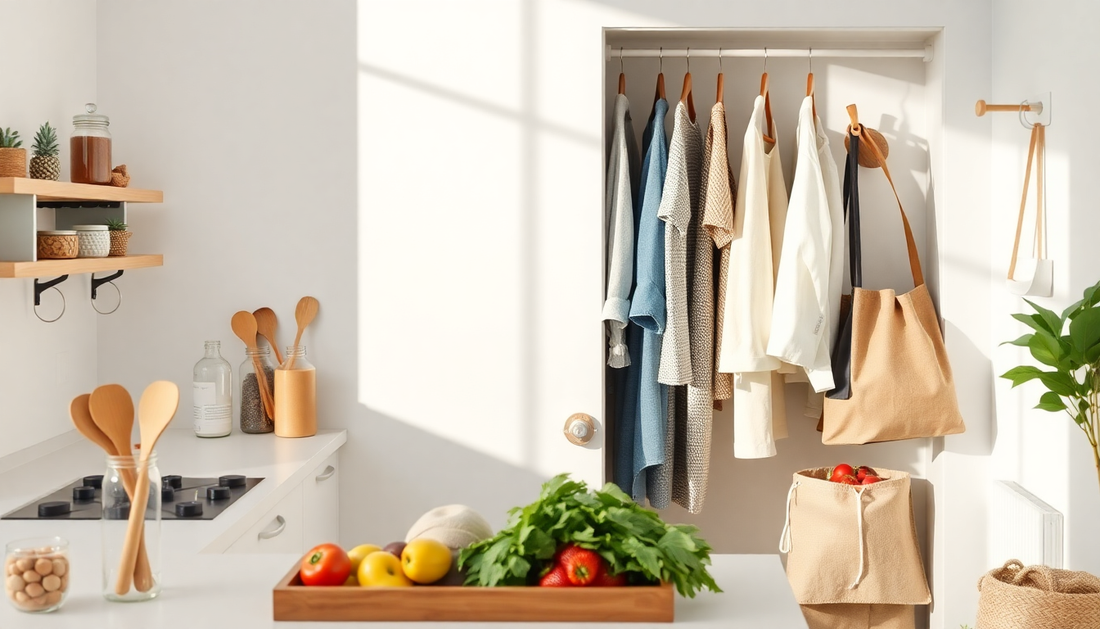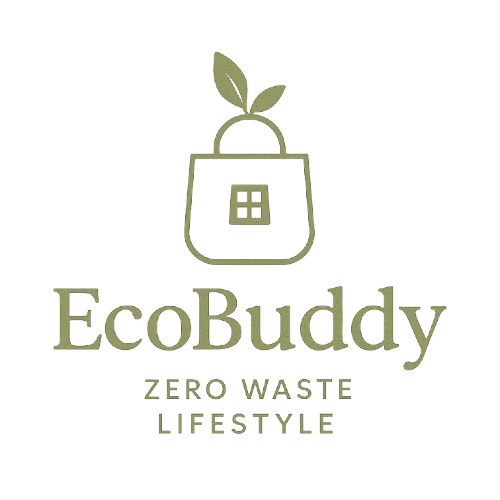
From Kitchen to Closet: The Ultimate Guide to Plastic-Free Living
Share
In a world increasingly aware of the environmental impact of our daily choices, the call to reduce plastic consumption has never been louder. As the founder of EcoBuddy, a company dedicated to providing natural, warm, and elegant alternatives to plastic-based products, I've made it my mission to empower individuals on their journey towards a more sustainable lifestyle.
Plastic pollution is a global crisis that touches every aspect of our lives, from the oceans we cherish to the food we consume. The sobering statistics are hard to ignore - by 2050, it's estimated that there will be more plastic in the ocean than fish. This alarming reality has fueled my passion for promoting plastic-free living, and I'm thrilled to share my insights with you.
Kitchen Plastic Alternatives: Rethinking the Heart of the Home
The kitchen is often the epicenter of our plastic consumption, from the ubiquitous plastic wrap to the disposable utensils that have become a staple in many households. But fear not, there are a wealth of eco-friendly alternatives that can transform your kitchen into a plastic-free oasis.
One of the easiest swaps is investing in reusable food storage solutions. Say goodbye to the endless cycle of plastic bags and containers and hello to sleek, airtight glass jars, silicone lids, and beeswax wraps that keep your food fresh without the environmental cost. These durable, reusable options not only reduce waste but also add a touch of natural elegance to your kitchen.
Next, consider upgrading your cooking utensils to sustainable materials like bamboo, wood, and stainless steel. Not only are these options more durable and long-lasting, but they also bring a warm, organic feel to your culinary workspace. Pair these with a set of reusable produce bags for your grocery runs, and you'll be well on your way to a plastic-free kitchen.
Closet and Personal Care Transformation: Dressing Sustainably from Head to Toe
Our clothing and personal care choices can have a significant impact on the environment, and it's time to rethink these areas of our lives as well. Fortunately, there are plenty of eco-friendly options that allow you to look and feel your best without sacrificing your values.
When it comes to fashion, seek out natural fibers like organic cotton, linen, and bamboo. These materials not only feel luxurious against your skin but also biodegrade more easily than their synthetic counterparts. Complement your wardrobe with accessories made from sustainable materials, such as wooden buttons, cork handbags, and recycled metal jewelry.
In the personal care realm, explore the world of natural, plastic-free products. Swap out your conventional shampoo and conditioner for solid bars that come in compostable packaging. Discover the joys of using a safety razor instead of disposable plastic ones, and find deodorants and moisturizers that come in reusable glass or aluminum containers. These small changes can have a significant impact on reducing your plastic footprint.
Home and Lifestyle Plastic Reduction: Embracing a Minimalist, Sustainable Approach
Plastic infiltrates every corner of our homes, from the cleaning products we use to the decor that adorns our spaces. By taking a minimalist, sustainable approach, you can create a haven that is not only beautiful but also environmentally conscious.
Start by swapping out your conventional cleaning supplies for eco-friendly alternatives. Opt for concentrated, refillable solutions that come in glass or aluminum bottles, and explore the versatility of natural cleaning agents like baking soda, vinegar, and castile soap. These gentle yet effective options will keep your home sparkling without the plastic waste.
When it comes to home decor, seek out pieces made from natural, renewable materials. Incorporate wooden furniture, woven baskets, and ceramic accents to bring a warm, organic feel to your living spaces. Avoid fast-fashion home goods and instead invest in timeless, high-quality items that will stand the test of time.
Practical Tips for Transitioning to a Plastic-Free Lifestyle
Making the switch to a plastic-free lifestyle can seem daunting, but with a few practical strategies, you can make the transition seamless and sustainable.
Start small and focus on one area at a time. Perhaps begin with your kitchen, swapping out plastic storage containers for reusable options. Once you've mastered that, move on to your personal care routine or your cleaning supplies. Gradual implementation allows you to build momentum and avoid feeling overwhelmed.
When it comes to finding plastic-free products, don't be afraid to get creative. Scour your local thrift stores, farmers' markets, and specialty shops for unique, sustainable finds. Online marketplaces like EcoBuddy also offer a curated selection of high-quality, plastic-free alternatives to meet all your needs.
Remember, going plastic-free doesn't have to break the bank. Look for budget-friendly options, and consider the long-term cost savings of investing in reusable items. The initial investment often pays off in the form of reduced waste and a healthier environment.
The Environmental and Personal Benefits of Plastic-Free Living
Embracing a plastic-free lifestyle not only benefits the planet but also has a positive impact on your personal well-being. By reducing your carbon footprint and minimizing your exposure to harmful chemicals, you'll be taking a significant step towards a healthier, more sustainable future.
The environmental advantages are clear - less plastic waste means fewer microplastics polluting our oceans, waterways, and soil. This, in turn, protects the delicate ecosystems that sustain life on our planet. Additionally, the production and disposal of plastic contribute to greenhouse gas emissions, so by cutting back, you're actively combating climate change.
On a personal level, switching to natural, plastic-free products can have a profound effect on your health. Many conventional plastics and synthetic chemicals are linked to endocrine disruption, hormone imbalances, and other adverse health effects. By embracing eco-friendly alternatives, you're reducing your exposure to these potentially harmful substances and investing in your long-term well-being.
Conclusion: A Call to Action for a Plastic-Free Future
The journey towards a plastic-free lifestyle may seem daunting, but I can assure you that the rewards far outweigh the challenges. By making small, consistent changes in your daily routines, you can create a ripple effect that extends far beyond your own household.
I encourage you to start today, whether it's swapping out your plastic food storage containers or exploring natural personal care products. Remember, every step you take towards a more sustainable future is a victory worth celebrating. Together, we can create a world where plastic is the exception, not the norm, and where the health of our planet and our own well-being are prioritized.
Join me in this exciting, eco-friendly adventure. Let's transform our kitchens, closets, and homes, one plastic-free choice at a time. The future is ours to shape, and it's time to make it a greener, more sustainable one.
